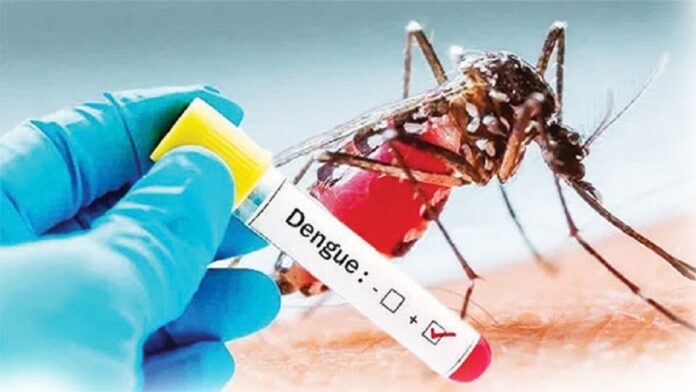May 11, Colombo (LNW): Health authorities in Sri Lanka are raising the alarm over a significant spike in dengue infections, with over 19,000 cases recorded in the first four and a half months of 2025.
The National Dengue Control Unit (NDCU) has warned that unless immediate preventative measures are taken, the country could face a wider public health crisis in the coming months.
The latest figures show a steady month-on-month increase, with January seeing 4,936 infections, followed by 3,665 in February.
March registered a similar figure at 3,770, but the number jumped considerably in April, reaching 5,175. By the 10th of May alone, 1,669 new cases had already been reported, indicating the likelihood of another surge if the current trend continues.
Ten districts have been identified as high-risk zones due to persistently high case numbers. These include urban and semi-urban areas such as Colombo, Gampaha, and Kalutara in the Western Province, alongside districts from other parts of the island including Ratnapura, Kandy, Batticaloa, Trincomalee, Matale, Galle, and Matara.
These regions are now under intensified surveillance and targeted vector control operations.
Officials from the NDCU attribute the rise in cases to a combination of prolonged rainy weather, inadequate waste disposal, and public complacency in eliminating mosquito breeding grounds.
With the Aedes aegypti mosquito—responsible for transmitting the dengue virus—thriving in stagnant water, authorities are urging citizens to be vigilant in maintaining clean surroundings, particularly during the monsoon season.
Health experts have reiterated that dengue is not simply a seasonal nuisance but a recurring public health threat that can become deadly if left unaddressed.
They have appealed to the public to take basic but critical actions, such as regularly emptying water containers, cleaning gutters, covering water storage tanks, and disposing of old tyres and bottles that collect rainwater.
Meanwhile, local government bodies are ramping up awareness campaigns and inspection drives in both residential and commercial areas.
Mobile medical units and emergency response teams are also being prepared in high-incidence regions to respond swiftly to potential outbreaks.
Medical professionals are advising individuals showing early symptoms of dengue—such as high fever, severe headaches, pain behind the eyes, muscle and joint pain, and skin rashes—to seek medical attention promptly.
Delays in treatment, particularly in cases that progress to dengue haemorrhagic fever, can be fatal.

